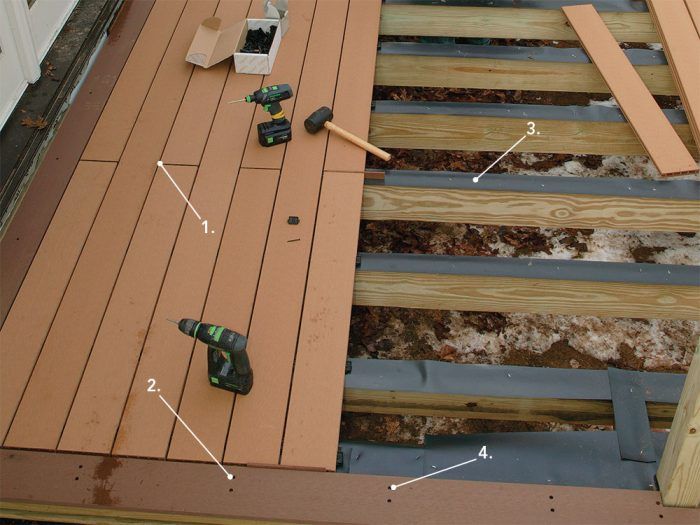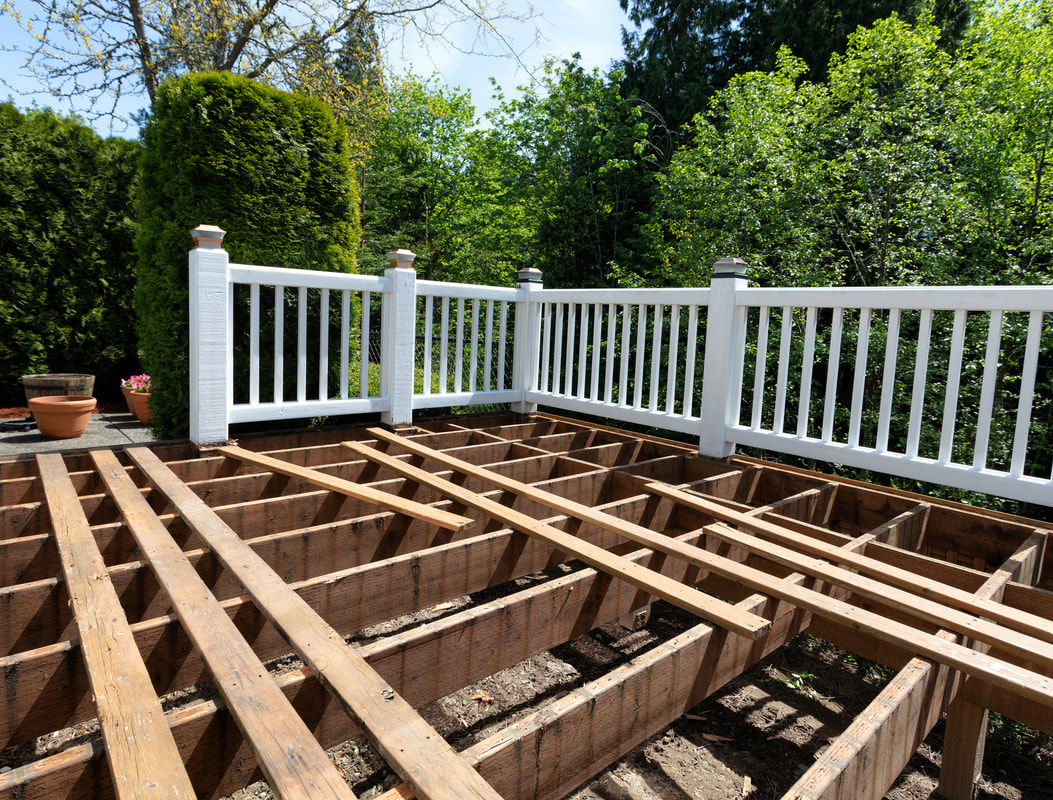If you're searching for trusted deck installation near me, be sure to compare reviews and services.
If you're searching for trusted deck installation near me, be sure to compare reviews and services.
Blog Article
How to Select the Right Materials for Your Deck Setup Task
Selecting the suitable materials for your deck setup task can appear difficult. There are many variables to consider, from resilience and maintenance to visual appeals and environmental effect. The option in between standard timber and composite products, each with its very own collection of benefits and disadvantages, can be especially challenging. The secret is to balance your budget plan, design preferences, and lifestyle needs to develop a deck that will certainly improve your exterior area for several years ahead.
Recognizing the Various Kinds Of Deck Materials
When beginning on a deck installment task, the choice of materials ends up being a crucial choice. Compound materials, on the other hand, are a blend of wood and plastic, providing resilience and resistance to weather aspects. By recognizing these differences, homeowners can make a more enlightened choice on the most suitable deck material for their specific needs.
Evaluating the Sturdiness and Maintenance Demands of Deck Materials
Analyzing the toughness and maintenance needs of deck products is a critical step in deck installation. Resilience involves the product's capability to withstand rough climate conditions, wear and tear, and its longevity.
Recognizing maintenance needs is similarly crucial. Some products need regular sealing or staining to preserve their appearance and withstand dampness damages, while others, like composite outdoor decking, demand less upkeep. By examining these variables, one can select one of the most suitable outdoor decking product, making certain an equilibrium in between sturdiness, upkeep needs, and visual appeal.
Expense Evaluation: Comparing Wood and Compound Decking
Although cost might initially appear like a second issue, it is a considerable element when comparing timber and composite decking. On the other hand, composite outdoor decking, while costlier initially, needs much less maintenance, possibly decreasing long-term prices. Potential deck proprietors need to consider their budget and readiness to maintain their decks when determining between timber and composite decking.
Appearances and Layout Flexibility of Decking Materials
While cost is an essential consideration, the aesthetic allure and style adaptability of decking products additionally play a considerable duty in the decision-making process. Various products supply varying degrees of aesthetic appeal. For circumstances, natural timber outdoor decking offers a timeless, classic look, while composite products supply a wide variety of shades and structures to suit diverse tastes and designs. Layout adaptability refers to the capacity to form and adjust the outdoor decking product to fulfill details design needs. Timber, for example, supplies high layout adaptability as a result of its convenience of reducing and forming. Compound products, while less adaptable in layout, are still versatile sufficient for the majority of deck layouts. These factors, as a result, are critical components in the option of outdoor decking product.
Ecological Impact of Decking Materials
When picking decking products, one need to consider not only appearances and longevity, however additionally the environmental influence. It's essential to assess the sustainability of products and discover recycled decking alternatives. In addition, understanding the potential effect on neighborhood ecosystems will certainly ensure a much more eco responsible option.
Evaluating Material Sustainability
In the world of deck construction, assessing product sustainability is a critical step. Composite decking products often combine wood and plastic, reducing the demand for brand-new timber yet increasing dependence on fossil gas - deck installer austin. Therefore, the choice of decking products should stabilize functionality, aesthetics, price, deck installation and sustainability to guarantee a liable and lasting installment.
Recycled Decking Alternatives

Composite decking is specifically prominent as a result of its sturdiness and convenience of maintenance. It's immune to rot, insects, and fading, making it a resilient alternative. Recycled plastic decking, on the other hand, is highly durable and needs marginal upkeep. While these materials may bring a greater initial expense, their long life and minimized ecological impact make them a smart financial investment for the eco-conscious homeowner.

Effect on Local Ecosystems
While the advantages of utilizing recycled materials for decking can not be overemphasized, it's just as crucial to take into consideration the more comprehensive ecological ramifications of these options. Proper disposal of old outdoor decking is essential to decreasing garbage dump waste. Essentially, an eco-conscious deck project demands mindful material selection, sustainable sourcing, and liable disposal.
Making Your Last Decision: Tips for Selecting the most effective Deck Products
As the post shifts into the subtopic of "Making Your Final Choice: Tips for Choosing the very best Deck Products", it is critical to understand the variety of deck products offered. Striking a balance in between toughness and appearance is essential in this option procedure. The following conversation will guide viewers in making an educated selection based upon these key factors to consider.
Comprehending Various Deck Materials
The job of picking the appropriate products for your deck installment can appear daunting as a result of the substantial selection of choices offered. Understanding the various products can simplify this process. Timber is a prominent choice, providing a classic aesthetic and cost. Sorts of timber made use of include pressure-treated lumber, cedar, and redwood. Compound materials, made from a blend of timber and plastic, are low-maintenance and immune to rot and insects. Vinyl or PVC decks are much more sturdy and call for more helpful hints much less maintenance find out this here than composite materials, yet they can look much less all-natural. Aluminum decks are strong, lightweight, and resistant to rot, but they are likewise the most costly alternative. Each material has its very own advantages and downsides, making it important to consider your certain demands prior to making a decision.
Toughness vs. Visual Appeals Balance
Stabilizing resilience with visual appeals can be a challenge when selecting deck products. The choice commonly boils down to personal choices and the deck's planned use. High-traffic locations may require durable materials like composite decking, which stands up to damage but might do not have the all-natural charm of wood. On the various other hand, wood provides a classic appeal and heat that synthetic products struggle to replicate. Nevertheless, it requires much more maintenance and might not last as long. Consequently, house owners need to strike an equilibrium, taking into consideration both the deck's useful needs and their aesthetic preferences. By doing so, they can ensure their deck remains a useful and eye-catching outside space for years ahead.
Verdict
To conclude, selecting the best materials for your deck installation task needs cautious factor to consider of aspects such as longevity, upkeep, expense, appearances, and ecological impact. Whether you go with traditional wood or composite products, your selection must straighten with your budget, style preferences, and way of living. Eventually, the very best outdoor decking material is one that boosts your exterior space and provides pleasure for several years to come.
Report this page